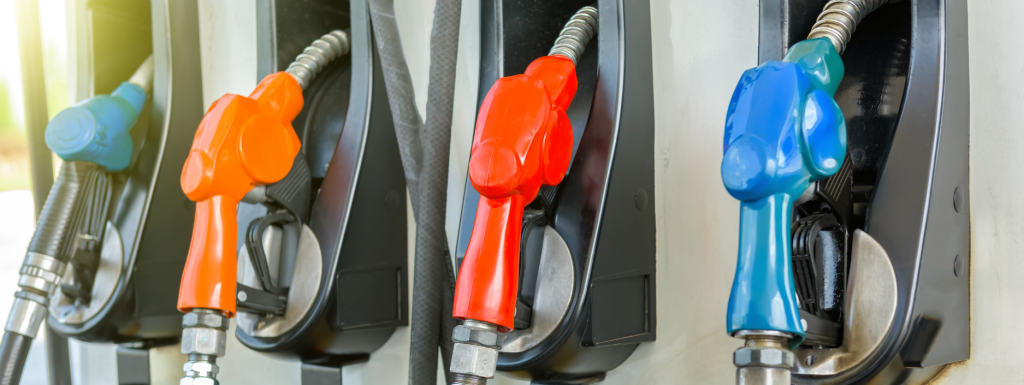As panic at the pumps continues to spread across the UK, Scrap Car Comparison has put together a helpful guide with tips on how you can save fuel and get the most from your motor before you need to fill up your tank.

1. Fuel Efficient Driving
Did you know that you could reserve fuel by changing the way that you drive? The quicker you drive, the quicker you’ll use up your petrol and diesel as your engine has to spin faster.
A driving technique to use is keeping your revs low by driving in the highest gear possible for the speed you’re travelling at. The optimum time to change gear for petrol vehicles is between 1,500 and 2,500 revs per minute (rpm) and between 1,300 rpm and 2,000 rpm for diesel vehicles. So avoid letting your revs get too high and change gears sooner and gently to conserve fuel.
Keeping your vehicle moving at the right speed is also very efficient. And, although traffic can sometimes be unavoidable, speeding up, slowing back down and speeding up again will naturally use more fuel. So, where possible, keep your vehicle rolling and drive smoothly, gently changing gear.
2. Check Your Tyres
An unlikely tip, but a really useful one. Ensure your tyre pressure is sufficient, as tyres which are even slightly under the recommended pressure will make your vehicle use more fuel. Check your vehicle’s handbook for the advised tyre pressure for your vehicle and get more miles from your motor.
3. Minimise Electric Use
Anything in your vehicle that requires energy to power will need fuel to function. Everything from the heating and air con to the stereo and headlights will have an impact on your petrol or diesel consumption. To reserve fuel, minimise your use of heating and AC, and if you don’t have daytime running lights (which are typically economical), only use your headlights when it’s dark or you have poor visibility.
4. Lighter Car Loads
If your vehicle is carrying a heavy load, it will use more fuel as you’re driving. So, if there are weighty objects in your car or van that you can live without, items such as heavy tools or bike and roof racks, it’s worth removing them. Removing external extras such as roof and bike racks will also reduce drag and save your petrol and diesel. Any items in the backseats or boots that are not essential can also be removed to lighten the load. Plus, if you have a car full of passengers your vehicle will be less economical.
5. Stop and Starting
You might think that turning off your engine while waiting can save your petrol or diesel, but depending on the vehicle you’re driving and how warm your engine is, stopping and starting the engine can actually use more fuel rather than conserve it. The general rule of thumb is if you’re stopping for a few minutes, then it’s more beneficial to your tank to keep the motor running. However, if you’ve come to a stand still and are expected to wait over 3-4 minutes (perhaps at train gates) then it can be more efficient to turn your engine off and restart when you need to. If you’ve got a newer vehicle with a stop/start system your vehicle will already automatically switch off your engine when it needs to in order to save your fuel.
6. Combine Journeys
Where you can, combine journeys or make them shorter where possible – less driving means less fuel consumption! Plus, by planning your routes or using a Sat Nav you’re reducing the risk of getting lost or getting stuck in traffic and using up more petrol or diesel.
Is your area prone to traffic, police or accidents? Find out in our Waze Report.
7. Use an Alternative Method of Transport
If you’re making a short journey, consider leaving your vehicle at home and either walk, cycle or use public transport in order to keep your tank topped up. If you aren’t using your vehicle as much as you have been, find out how to keep it maintained. A well maintained vehicle will also conserve fuel better. Or, if you’re thinking about getting rid of your car or van altogether, fill in the form to see how much your car or van is worth.
8. Only Fill up When You Need to
During this current fuel crisis, some people are unnecessarily topping up while others may be running on empty. However, it’s important to fill up your tank when you need to. Ideally, you shouldn’t wait for your fuel light to turn on, as driving with so little petrol or diesel in your motor causes debris from the bottom of the tank to get picked up, potentially damaging the fuel filter and pump which can be costly to repair. Where possible, fill your tank up as much as you can so you can avoid joining the queues (again). However, it’s worth noting that some refilling stations have a temporary cap, limiting the amount of petrol and diesel you can put in your vehicle. To check which fuel stations near you have petrol or diesel, use Fuel Genie to easily locate a supermarket station with availability with the type you’re looking for.
Read More
Find out which cars are in the top 40 for fuel efficiency under £5,000 or read how fuel prices have changed over lockdown.
Want to find out more about vehicle scrapping and see how much your car or van could be worth? Get a quote in 30 seconds.


